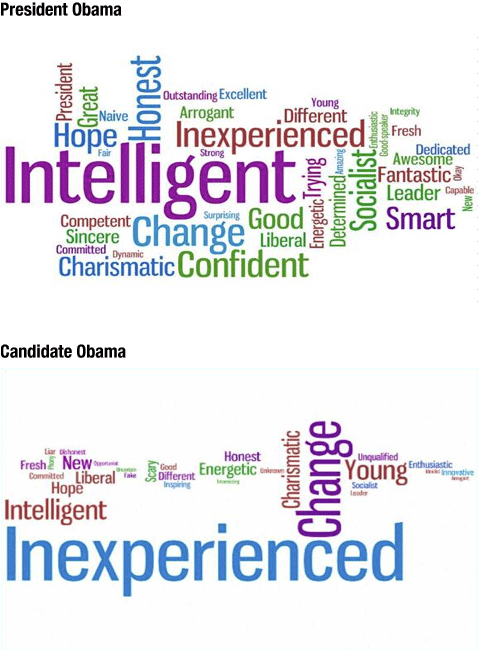And, they argue Republicans are running circles around Democrats with this new technology. Say what?
Recently, we’ve seen a tsunami of Congressional tweeters, or maybe “twits” would be more appropriate:
Rep. Peter Hoekstra (R-MI) got himself in hot water with the Pentagon. A barrage of tweeting during Obama’s speech last week caused quite a stir. For Sen. Claire McCaskill (D-MO), it was her mother who disapproved of her inappropriate twirps, although her twittering was sparse compared to compulsive tweeter Rep. John Culberson (R-TX). Someone on Rep. Joe Barton’s (R-TX) staff urged people to turn on the Aggie’s basketball game on ESPN2 rather than “watching Pelosi smirk for the next half hour.”
Clearly, Twitter-obsessed politicians have a ways to go before becoming Micro-Blogging Masters. If Twitter is the key to the next campaign cycle, does it matter if Democrats cede the technology to the Republicans?
For many cycles, Republicans were most adept at direct mail, an expensive (but effective) medium that provided a small dollar fundraising network, massive voter ID files and an election day GOTV advantage that proved decisive in many campaigns. The conservatives also understood the power of talk radio decades before progressives realized Republicans were conducting daily focus groups with moderators named Limbaugh, Hannity, and Ingraham. Despite Michael Steele’s recent comments, political talk radio has long been much more than “ugly and incendiary” entertainment. It provides Republicans a conservative echo chamber that shapes opinion, creates and disseminates talking points, and morphs into a grassroots activist storm on a moment’s notice.
After trailing Republicans technologically for so long, Democrats were the first to harness the power of the Internet as both a fundraising and organizing tool. Dean’s online ATM in 2004 was the precursor to the Obama finance juggernaut that stunned politicos throughout 2007-2008. Democratic candidates have been more comfortable with the blogosphere, understanding the grassroots organizing potential in ways Republicans have yet to fully grasp. In 2008, Democrats augmented their online advantage as they proved most agile in the newest online tools – YouTube and social networking sites, transforming politics into a participatory experience unseen in a generation.
So, yes, if micro-blogging becomes the communications technology that transforms campaigns in 2010 and 2012, it will matter which party does it better. Despite claiming that “Democrats have stood aside as Republicans conquer Twitter,” the Politics article cites scant evidence Republicans have done anything meaningful with the medium.
…when Orange County Republican legislator Chuck Devore set out to topple California Sen. Barbara Boxer, Hart knew his client had an uphill climb—but saw a strategic advantage: the 46-year-old Devore is a blogger.
“We knew we could tap into our new media advantage to get us some buzz,” he says.
So Hart set up a “Tweet for Chuck” campaign. Devore put out a call for contributions, and importantly, echoed out the responses: “@justin_hart gave $25 to my campaign to help defeat Boxer. @DavidAll referred!”
That tactic helped to ripple excitement around Devore’s candidacy out through his, Hart’s and All’s combined networks of 6,000 followers. More useful than the money raised—Devore attracted contributions from 160 Twitterers—was the attention his quixotic campaign received, including a profile in the Wall Street Journal. Hart is now executing a similar strategy for the Heritage Foundation.
A grand total of 160 donations and a write up in Murdoch’s WSJ means the Republicans have run circles around the complacent Democrats? Actually, they’ve pounced:
Republicans have pounced on the opening. Top Conservatives on Twitter is a popular leaderboard of the right’s Twittegensia, and Rep. John Culberson (R-Texas)—perhaps best known for being the first member of Congress to tweet from the House floor—enjoys 5,700 followers. That’s more than three times Speaker Nancy Pelosi.
Mat Morrison, a digital communications planner for Porter Novelli, created a great map of congressional Twitter users for his blog, mediaczar.com. Legions of Republicans use the service, but a scant handful of Democrats. Senate Majority Leader Harry Reid isn’t on Twitter at all, while Senate Republican Leader Mitch McConnell has about 700 followers. (Morrison points out that the two groups are pretty clique-y—there’s little information flow between the two groups. In other words, Dems tweet only to Dems, Republicans tweet only to Republicans.)
What’s so appealing to embattled conservatives is the chance Twitter provides to exploit what sociologists call “the strength of weak ties”—or as Ruffini puts it, “connecting [you to] people you should know.” And perhaps more importantly for a party struggling to reclaim its purpose, Twitter excels at spreading ideas. Thanks to Twitter traffic, in less than a single day last summer “#dontgo” became a battle cry for Republicans who refused to leave the House floor to protest Pelosi’s refusal to debate domestic oil drilling.
Legions of Republicans and a scant handful of Democrats certainly sounds intimidating. But according to the numbers at TweetCongress.org, the current scorecard of Congressional tweeters is 65 Republicans vs. 35 Democrats. This represents 28% of elected Republicans and only 11% of Democrats on the Hill, a minority of both parties. Considering their leadership positions, it makes sense Pelosi and Reid (and Obama who has essentially suspended tweeting since his election) that these Democrats aren’t sending moment-by-moment updates. Considering the potential for embarrassment (see Rep. Barton) or scandal and the limitations of communicating detailed policy positions in a 140-character window, it’s understandable that people in leadership positions might shy away from this format. In fact, it isn’t all that difficult to make the argument that microblogging is a tool more conducive to the opposition.
Besides, if you’re a party lacking substantive ideas and placing all your hopes on stopping the president’s agenda, it makes sense that Twitter might send a tingle down your leg.





No comments:
Post a Comment